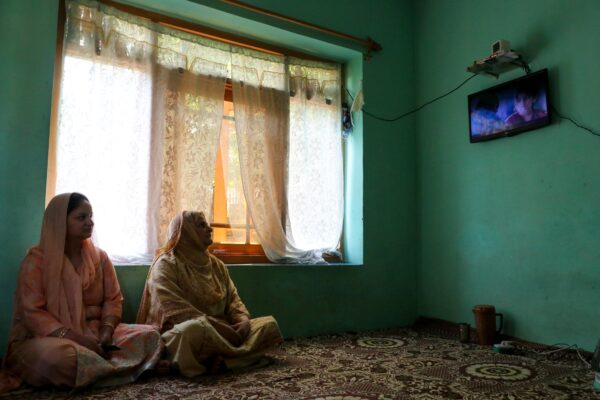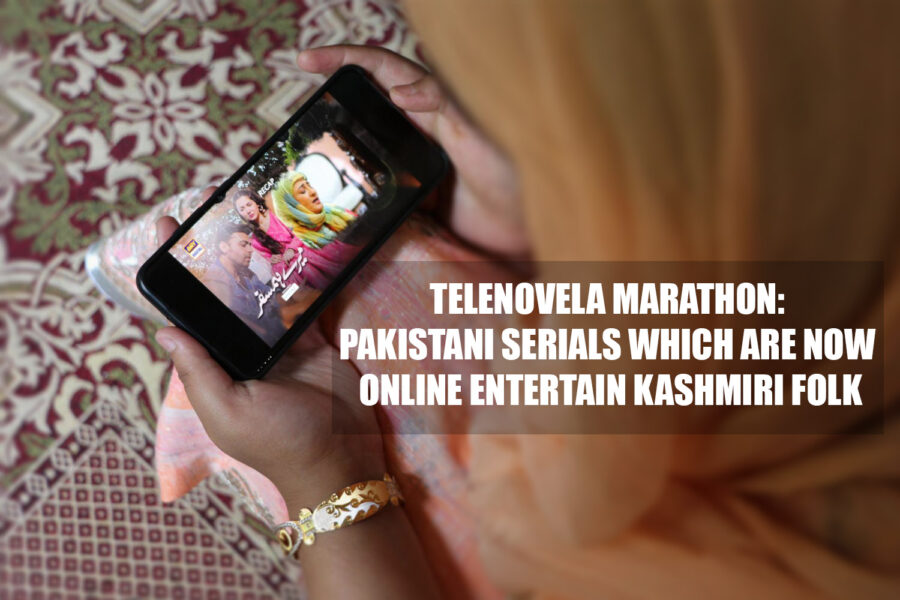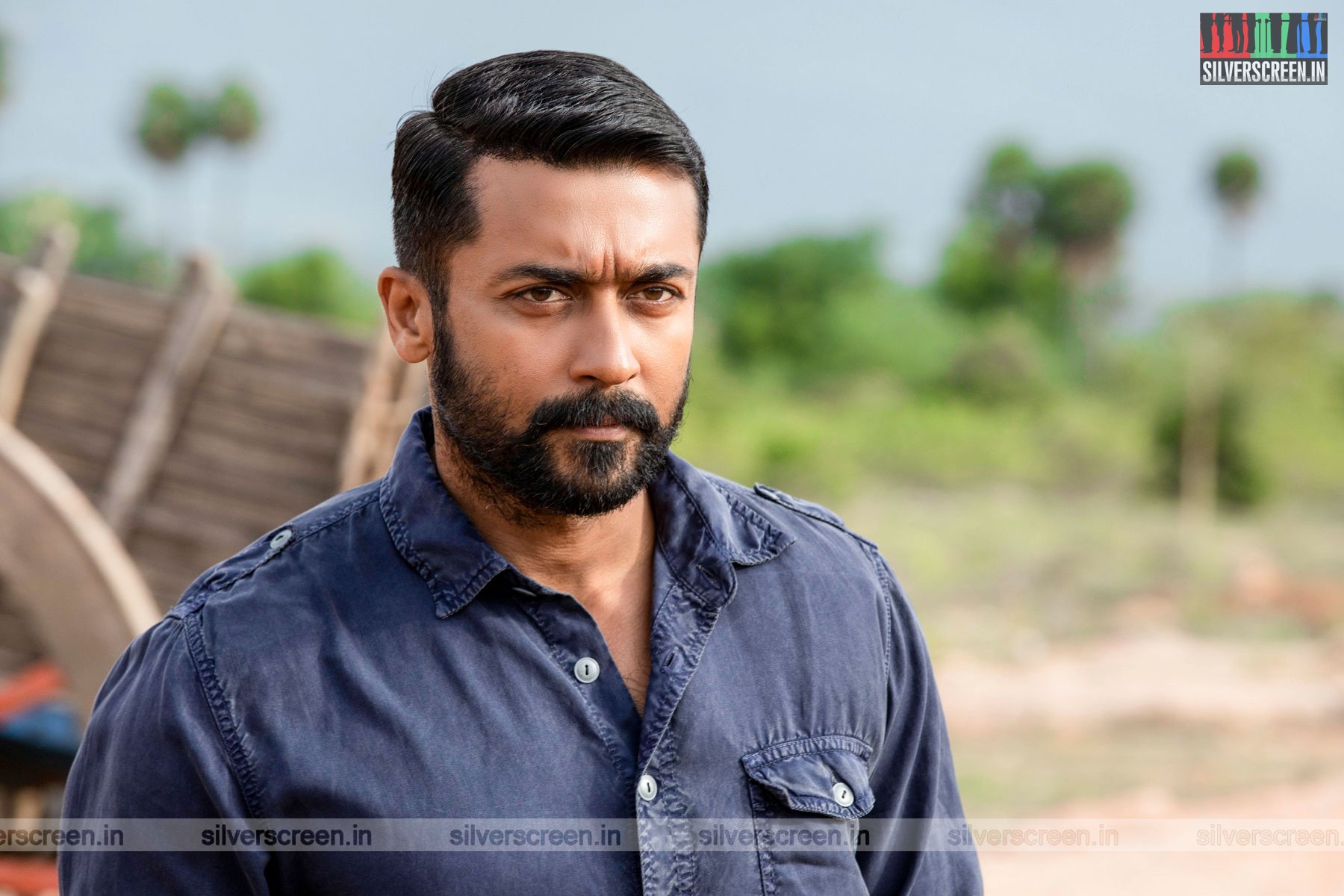Until 2017, it was fairly common for television sets in Kashmiri homes to play Pakistani dramas. People would gather around to watch short yet tremendously popular dramas like Humsafar dealing with different facets of love and relationships and relate to it better than the several hundred Hindi saas-bahu serials that was Indian TV’s offering.
Most Kashmiris watching Indian soaps said that they could not understand the deep logical inconsistencies that shows presented to audiences.
“Unlike lengthy Indian serials, there are no rebirths in Pakistani serials. In Indian television serials when a character dies, they are found alive again in another city or village after several years,” said Dr Asmeh, a middle-aged working woman from Srinagar.
She first started watching Pakistani serials on the Indian TV network Zee Entertainment Enterprises which launched the channel Zindagi in 2013. This channel was available on cable networks in Kashmir and showcased serials and cooking shows from across the subcontinent besides Pakistan including Saudi Arabia and Iraq. Zindagi was the first Indian entertainment channel that aired popular Pakistani serials till it stopped airing them following the 2016 Uri attack.
Over the years, people from Kashmir have taken to the internet to watch the shows that have helped them share culture from across the subcontinent. These have included cooking shows that appeal to their similar palettes, telenovelas that show fashion similar to theirs, and mostly dramas that have themes and values that Kashmiris can relate to. This has been possible only due to internet and mobile penetration. This journey towards getting a variety of entertainment has however been tedious and frequently disturbed by internet and channel bans.
The curb
In 2017, the then Jammu and Kashmir government banned at least 34 “unauthorized” TV channels for their “potential to encourage violence and disturb the law and order situation in Kashmir”.
Some of the popular channels which were disallowed from airing included religious and news channels like Hum TV, ARY Digital Asia, Hum Sitaray, ARY Zindagi and ARY Masala that showcased some of the more popular Pakistani drama serials widely watched in Kashmir.
The then Governor of the state N. N. Vohra’s administration had distanced itself from the ban, saying that the “issue of permitting or not permitting telecast of any TV channel is not within the purview of the State Government and the state has no role in it.”
The Pakistani serials were later replaced with Turkish dramas as no other alternatives were available.
Over the years though, Pakistani shows have once again become popular due to the easy availability and penetration of mobile internet. The episodes usually talk about various social issues, culture and religion- all major points of attraction for Kashmiri women.
Commonalities
Several Kashmiri women say that Pakistani shows do a better job of recording their presence and nailing characters who are similar to them. They are also short and less caricature-like, they say.

Most of these popular Pakistani drama serials featuring strong and more realistic female characters are in fact written by women themselves. This attracts more female viewership. For example, Pakistani writer and Urdu novelist Umera Ahmed’s novels have been adapted into several popular dramas like Zindagi Gulzar Hai, Maat, Shehr-e-Zaat and Durre e Shehwar which have been widely watched over the years.
Dr. Asmeh likes to catch up on her favorite Pakistani serials Parizaad on YouTube whenever she gets free time.
“Indian TV serials are full of melodrama and are unnecessarily stretched to years which make them boring and one loses interest after some time. But what works for Pakistani serials is that they are short, rational and end on a meaningful note,” she says.
A 25-year-old young woman from south Kashmir’s Anantnag district, who wishes not to be named, says when Zindagi channel was launched, she, her siblings and her mother would religiously follow serials like Humsafar, Maat, Meri zaat Zarra e benishan and Sher-e-zaat on the channel. She too has switched to YouTube to catch up with these shows when she could.
“The situations shown in Pakistani serials seem very real and authentic unlike the daily soaps we had been watching over the years on mainstream channels like Zee TV and Star. The major plot point or portion of conflict is not the problem between mothers-in-law and daughters-in-law but about social and cultural issues. Some of these Pakistani shows have meaningful scripts that are entertaining and educational. I know many young women who buy pen drives only for storing these serials. They also share these with their friends,” she says.
She says that her favourite serials are Udaari which talks about child abuse and Khuda Mera Bhi Hai which is about an intersex person. “I also like the serial Beti that talks about patriarchy, and more recent serials like Hum Kahan Ke Sache Thai which is about good parenting,” she says.
Currently, she is watching Sinf-e-Aahan, a serial on ARY Digital which she says is unlike most serials on television today. Here, women are not victims of society. “It introduces a completely different perspective which goes against the stereotypical idea of women being delicate and soft but instead proposes the notion that women are truly made of steel,” she says.
She adds that the similarities in religious and cultural themes explored sensitively by these serials helps find larger audiences in Kashmir. “The taboos and rituals shown in these serials are quite similar to the Kashmiri household. Our daily tussles are portrayed on screen,” she adds.
Sadaf Masoodi, a mass communication research scholar in the University of Kashmir, points out that the access to Pakistani serials is some kind of a breakaway in terms of content and style. She adds that they also do not make caricatures of Muslim characters.
“I do not remember having seen any mainstream, popular Indian drama that had any Muslim representation in leading roles. Even if there was any Muslim representation, it was more about some minor characters who would be portrayed in a stereotypical manner,” she says.
Sadaf has lost the count of Pakistani dramas her working mother manages to watch on YouTube whenever she gets some time, she says. She and many of her friends watch Alif as it speaks about spiritual connections. “Some of my friends were so inspired by how the theme was played in the serial that many of them started replicating the Islamic calligraphy that the series shows in detail,” she says.
Another Kashmiri researcher (name withheld) who studies gender issues says that since Kashmiri everyday life is informed by religion, and religious morality, Pakistani serials are largely accepted for collective viewership in households as they perform in this very same moral boundary. The relationships depicted in these serials resonate within Kashmiri cultural setup too, the researcher says.
“The latest trend of clothing as shown in Pakistani serials which is largely similar to the cultural clothing of Kashmiri men and women makes these serials relevant. They guide the Kashmiri fashion trends, unlike Indian clothing which is very different as shown in Indian television serials,” the researcher says and adds that viewers get a deep sense of closure as they are only about 30 episodes long.
Pakistani drama serials are also popular among young and old men in Kashmir.
A Kashmiri journalist who works in Delhi first started watching the popular Pakistani drama Zindagi Gulzar Hai about a decade ago and says that he was hooked to it. He found the theme of class divide and women empowerment shown in the serial realistic; its characters believable.
Recommended
“The female character in the serial comes from a humble family. There was nothing overly dramatic about the way they speak and I can easily identify myself and my friends with the story arc of characters,” he says, adding that his wife and her family also keenly watches many Pakistani dramas.
More recently, he and his friends in Kashmir particularly liked a Zindagi Original Pakistani drama web series Churails focusing on the lives of four women, Karachi’s secret detectives “whose mission it is to expose the city’s most unfaithful and elite husbands”. This has been streaming on the OTT platform ZEE5 since August, 2020. Every character in this web series has a compelling backstory.
Future
Many interviewees say that in this day and age, good content always sells. They would be happy to watch shows from both India and Pakistan as long as there is fair representation, great scripts, compelling acting and gripping plot lines. In the future, they hope for better content to showcase more regular representation of the lives of common Kashmiri folk.



